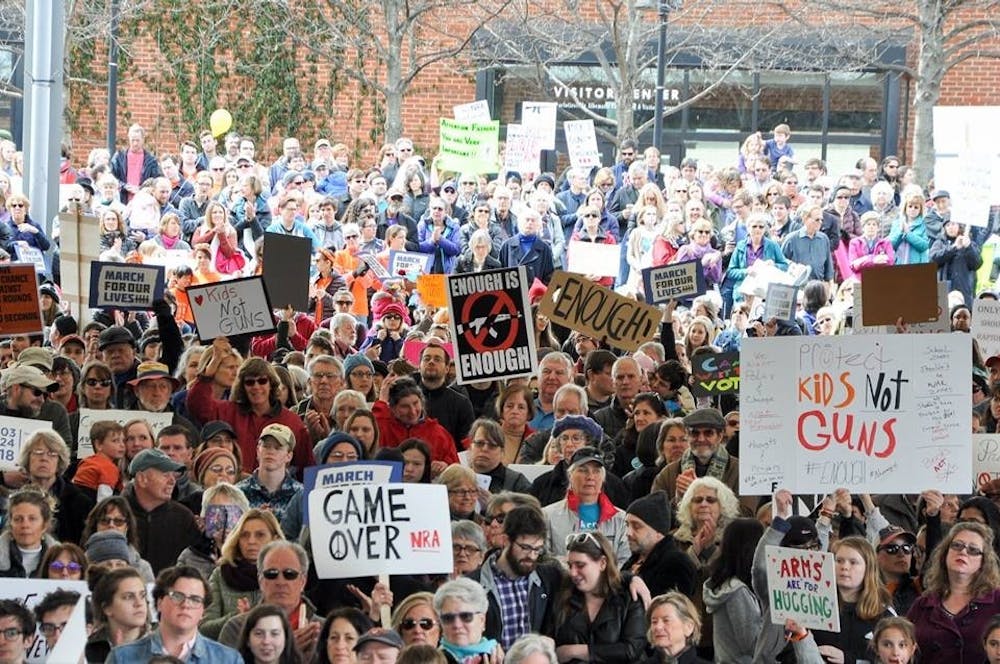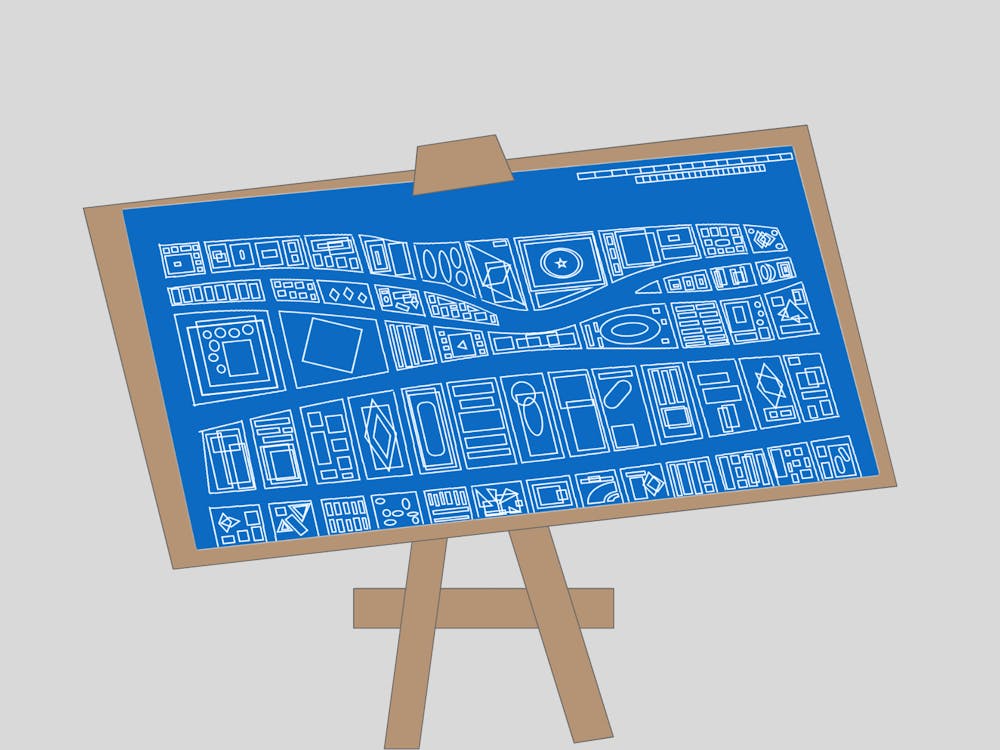With noble intentions, the student-led demonstrations known as “March for Our Lives” on March 24 carried a message of preventing gun violence. Following the recent shooting at Marjory Stoneman Douglas High School, the 800 demonstrations across the country challenged the status quo regarding gun control in the U.S. Unfortunately, these demonstrations, along with subsequent counter-protests, challenged something else as well — any hope of compromise. Senseless attempts at scoring points with political bases, angered claims lacking logical foundations and fierce emotional responses created more division than change.
Attacks on character were presented repeatedly by participants of the March for Our Lives. Of these, a prominent attack included a sign assaulting Sen. Marco Rubio’s (R-FL) faith rather than debating his ideals or considering his past gun-control action. On a sign picturing his face, attacks such as “#KidKiller” or “#NRAbitch” were written below. Seeking to target his Catholic faith, typically associated with beliefs in peace, the attacks further depicted blood on his forehead in the shape of a cross, with “#AshBloodyWednesday” beneath. Such ad hominem claims were not exclusive to proponents of March for Our Lives, however. Counter-protesters taking to state capitals across the country targeted individuals as well. Those who disagreed at their pro-gun events were labeled ‘un-American.’ Laura Ingraham, a prominent Fox News host, even went after Parkland survivor David Hogg for being rejected from four colleges he applied to.
The attacks on character at recent rallies transcend the issue of gun-control. Demonizing political rhetoric has thrived throughout the past decade. Such rhetoric, which aims to divide or enrage others, creates detrimental repercussions. These consequences include dashing dreams of compromise, sowing distrust within society and creating an “us versus them” mentality. Divisive rhetoric makes the American people an enemy to itself.
Divisive rhetoric sorts individuals into two groups: those who are right and those who are wrong. One solution is upheld as the only correct direction forward, while all other solutions — and those who support them — are deemed wrong and abhorred. The solution promoted by divisive rhetoric is considered ultimate and certain, sparing the idea from any consideration or judgment. Two parties cannot settle on a solution if they are constantly painting each other’s ideas as impossible or detrimental. In this situation, only one course of direction is right. If the two parties attack the other as atrocious or heinous, instead of their ideas, even less room is made for creating a joint solution.
The damage caused by divisiveness does not end here. Divisiveness transcends the sole issue of gun-control, as divisiveness sows seeds of distrust in all issues. If Republicans are willing to stand idly by as “pro-mass shooters,” why should anything different be expected regarding police brutality? If Democrats are willing to stand idly by as “baby-killers,” why should anything different be expected regarding immigration? Painting the other group as morally corrupt erases credibility on any issue — hurting compromise across the entire board. The longer demonization continues, the less likely compromise or reconciliation will ever occur.
Fortunately, there are ways of rebuilding the bridges broken by divisiveness. The first step in reconciliation, specifically regarding party politics, is realizing the key similarity between Republicans and Democrats. Although their policies may differ, both parties merely seek to do what is best for the American people. Driven by the want for peace and prosperity, the two parties envision a country free from danger. No logical Republican or Democrat truly desires to see mass shootings occur. The two parties simply promote different methods of achieving the same goal — for students to attend school without worrying about their safety from a lunatic with a deadly weapon.
The second step to overcoming demonization is realizing that the country can only move forward together. Never does a sole ideology control the creation of all progress in the country. Politically, legislation is birthed from a combination of different ideas, opinions and worldviews. Locally, change is driven by community leaders from all different backgrounds. Personally, the intellectual growth of an individual is heavily influenced by their interactions with ideas different than their own.
This process is reflective of the country as a whole, as America has historically existed as a mixing pot of cultural and intellectual diversity. America must continue to serve as a ground where the development of ideas can occur — no matter how different they are. Interestingly, mixing such ideas together creates some of the best solutions, attuned to the every detail and angle of a complex issue. Therefore, we must reconcile with those divided against us, realizing the only way change is created is together. As former President Barack Obama explained, “A good compromise, a good piece of legislation, is like a good sentence; or a good piece of music. Everybody can recognize it. They say, 'Huh. It works. It makes sense.'”
Matthew Nalls is a Senior Opinion Columnist for The Cavalier Daily. He can be reached at opinion@cavalierdaily.com.





